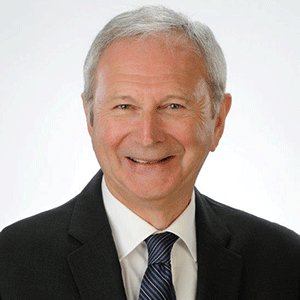
FREDERICTON — New Brunswick party leaders clashed over language in their second televised debate Friday night, debating whether the premier ofCanada’s only officially bilingual province needs to speak both French and English.
“I agree (bilingualism) is a very important skill. It’s not the only skill you need to bring to the premier’s office,” said Progressive Conservative Leader Blaine Higgs, who isn’t fluent in French.
“We’ve seen that we need more than that in order to fix our province.”
Higgs, Liberal Premier Brian Gallant and the other party leaders squared off on a community centre stage in Fredericton in a 90-minute debate carried on Rogers TV.
Gerald Bourque, the folksy, cowboy-hatted leader of the KISS party — or Keep It Simple Solutions — said with modern translation it’s not necessary for the premier to speak both English and French.
He joked that if you want a bilingual premier, you should vote for Gallant.
“He’s putting this province into debt in both official languages,” Bourque quipped, drawing laughter from the audience of staff and supporters for all the parties.
Gallant later acknowledged the joke was “pretty funny,” but stressed it’s important for the premier and cabinet ministers to demonstrate to both communities that they take their language seriously.
“I’m proud of the fact New Brunswick is bilingual,” he said.
Asked if the premier needs to be bilingual, Higgs said he supports bilingualism and is working to learn French.
“Yes, it’s an important asset to be bilingual. But it’s not the only thing,” he said, adding there are other big problems that need solutions.
The People’s Alliance party finds itself at the centre of the language debate. It advocates ending separate health and education systems for each official language. Leader Kris Austin said the money could be better spent to improve services.
He said being bilingual is an asset, but quoted Louis Robichaud, the premier who brought in official bilingualism, that unilingualism should not be a hindrance for government employees.
“We should not allow language to trump experience, qualifications and the ability to get things done. We’ve done this for too long in New Brunswick, allowing language to divide us, and allowing language to trump qualifications and skills,” Austin said.
Aside from Gallant, Green Leader David Coon has the strongest French skills among the other leaders. He endorsed bilingualism, saying “How are you going to understand what people’s concerns are?”
He accused Austin of dividing people.
“Give me a break,” Austin responded.
“The reality is we did nothing to divide this province … We’re not the ones that continue to put in overreaching policies on language to divide our people. We didn’t do it, we’re trying to stop it.”
The New Democrats’ Jennifer McKenzie said she’s trying to learn French and said it’s important.
“To re-open the language debate at this point is really counter-productive and irresponsible and I don’t believe that that’s what we should be doing, and we’ve seen being done by some of the other parties,” she said.
Simultaneous translation was provided later in the evening as the leaders took part in a French language debate on the same stage.
Throughout much of the English debate, Higgs and Gallant were targeted by the other leaders, who blamed the two frontrunners for the failure to fix the province’s problems during their time in government.
“Both of these parties are the same,” Austin said as the leaders exchanged views on the issue of government transparency.
The leaders also faced questions on New Brunswick’s aging population, low literacy rates and job creation.
During the first debate on Wednesday, Higgs captured headlines by producing an affidavit in which he alleged the Liberals had offered him the job of finance minister or deputy minister after the Liberals’ election win in 2014.
Gallant immediately refuted the claim, but later said he and his staff had meetings with Higgs to discuss the province’s finances, but he never offered to put Higgs in cabinet.
Advance polls are open Saturday and again on Monday.
At dissolution, the seat count in the legislature was 24 Liberals, 22 Progressive Conservatives, one Green, one independent and one vacancy.
The election is Sept. 24.